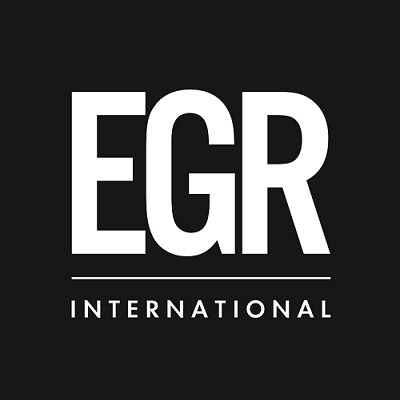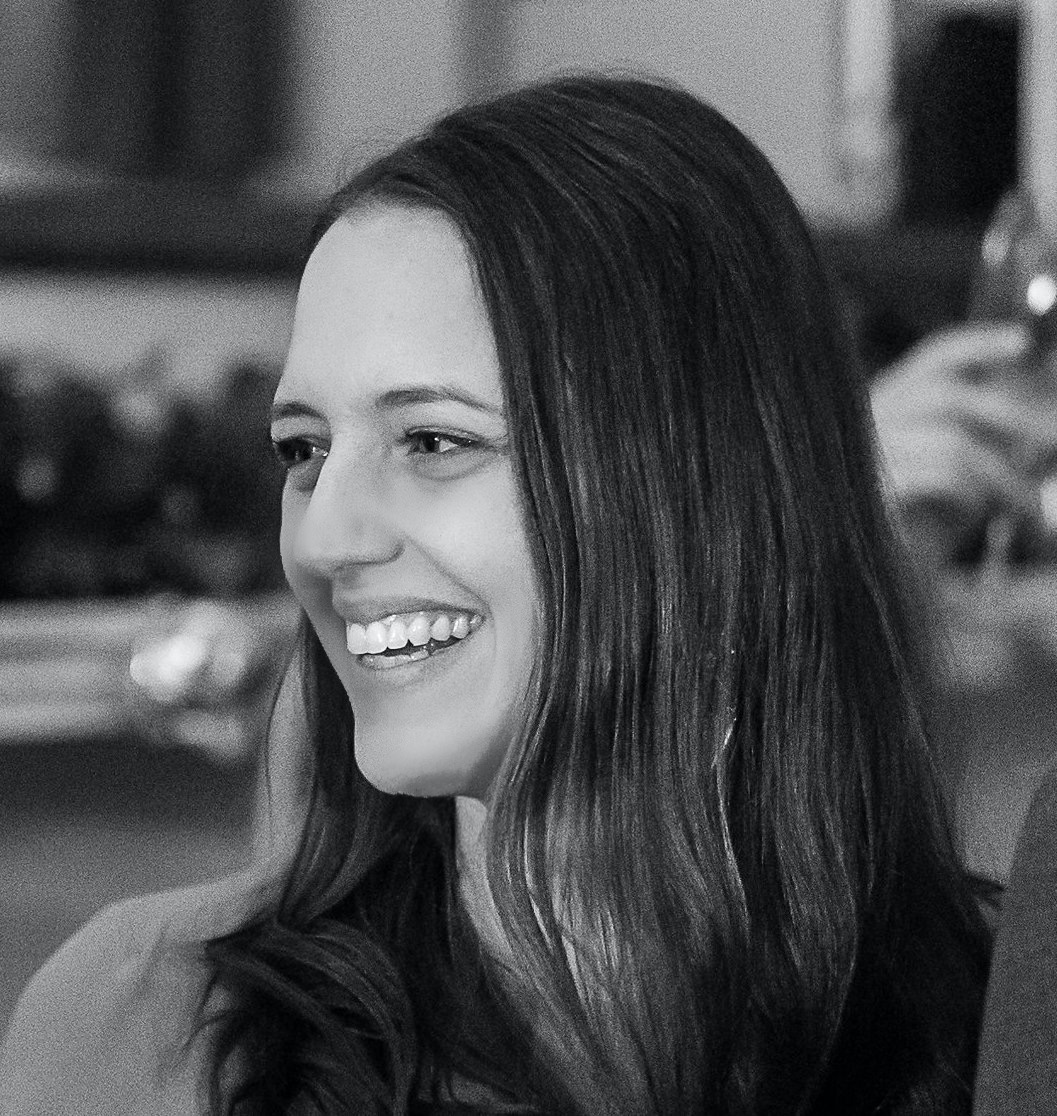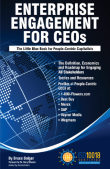EGR Management: We're Entering the Era of the Whole Person and What That Means

EGR International was one of the first firms to position itself as an enterprise engagement agency to help organizations align all stakeholders around a common vision. It was also one of the first in the incentive field to diversify beyond face-to-face events and incentive programs into other forms of communications through its in-house creative agency BlackLab Media. Its executives believe this early investment positioned it well for the pandemic and for the enormous changes in business coming in its wake. EGR’s clients rank among the biggest names in business.
ESM recently met digitally with Jennifer Scavina, Managing Partner and Executive Vice President of this 61-year-old Manhattan-based engagement firm; Jenni Smith, Chief Operating Officer and head of business strategy, and Rob Legge, Director of Consumer and Channel Marketing, to learn their views on the impact of the pandemic and what’s next for business.
ESM: What was the impact of the pandemic on your customers?
Jennifer Scavina: Out of adversity comes opportunity. We believe the big shift coming out of the pandemic will be a new focus on the whole person.

Having people suddenly out of their offices and showrooms and scattered about in their homes forced companies to take an entirely fresh look at how they communicate with people. One of our clients received more feedback than on almost any past communications outreach to a personalized gift box sent to each employee at home shortly after the pandemic hit offering a movie gift card to enjoy while hunkered down. In this case, this gift was sent to retail salespeople who sell other brands as well. You can imagine the impact. In effect, the message was: ‘We get it. We’re going to get through this. In the meantime, here’s something that speaks to your life now. That’s what makes a difference.’
Over time, we saw these personalized communications get even more sophisticated. Another client opted to cancel their in-person recognition program for their top field sales force and instead commissioned EGR to create personalized tribute videos – one for each winning employee. EGR secretly collected statements from the winners’ friends, families and co-workers, and knit them together into hundreds of personalized individual videos. Again, the feedback was tremendous. The feeling was ‘wow, my employer really understands my values and what is important to me during this time.’
Rob Legge: Everywhere we look we’ve noted that on a personal level people are taking a fresh look at their lives and their work-life balance. The pandemic gave us the opportunity to reflect on our work, why we are doing it, how can we get back to something better. Companies are seeing that and responding. This goes hand-in-hand with looking at the whole person.”
What does it mean to address “the whole person?”
Jenni Smith: We have to address the whole person no matter what the audience--employees, channel partners, or customers. We need to meet people where they are; provide trust and comfort, and whenever possible, connect what we do to purpose. People are looking around. They are questioning. They want to connect with their purpose on the job. If you make that connection, and enable them to grow in their profession, you will have what it takes to win their hearts and minds.
Jennifer Scavina: The concept of the ‘whole person’ has gone from a nice to have to a need to have. Across industries and organizations, there’s a profound change in how companies think about people. In the past there was a lot of ‘yes, yes, yes’ when we talked about focusing on the whole person—but not always as much action. The adversity of the pandemic hammered home that this is no longer a ‘yes, yes, yes, but.’ It’s now clear that a focus on the whole person is the only way to seriously move people, enhance influence, and bond people to brands. Buyers and employees have reshuffled their loyalties and behaviors; are they going to return to their old ways? Not if they are not getting what they need.
ESM: What is the impact of this approach on communications?
 Robert Legge: The pandemic accelerated the concept of a multi-platform communications approach. We have always believed in a multi-platform approach to engage people—so our clients were ready when they had to pause face-to-face events. We had digital components already set up with all our clients, so we were able to quickly digitize whatever they were doing. We don’t believe our clients are ever going back. They will still hold live events, but the more ways companies can connect with people on the platforms of their choice, the more they can adapt to where people are, the greater the impact. You can’t just have one approach.
Robert Legge: The pandemic accelerated the concept of a multi-platform communications approach. We have always believed in a multi-platform approach to engage people—so our clients were ready when they had to pause face-to-face events. We had digital components already set up with all our clients, so we were able to quickly digitize whatever they were doing. We don’t believe our clients are ever going back. They will still hold live events, but the more ways companies can connect with people on the platforms of their choice, the more they can adapt to where people are, the greater the impact. You can’t just have one approach.
You must take more time to put yourself into the shoes of who you are speaking to. You must be thoughtful about when and how they will receive the message, gift, incentive, or whatever, and in what context. How will they use it, how it is being distributed? This process takes various forms, depending on if you are talking communications, online rewards, digital strategies, or production of live or virtual events. Everything boils down to the authenticity and the experience.”
Jenni Smith: The boundaries have dissolved. You can’t afford to take a siloed approach to communications. Everything you say must relate in a consistent manner whether it’s a digital communication or happening live on stage. It requires an integrated approach. In many cases, that means having a client’s multiple agencies collaborating across many platforms.
ESM: What is the role of technology?
 Jenni Smith: There is a lot of technology out there, and at this point, we look at it as an enabler: not the be all and end-all. That’s why we are technology agnostic. It’s not necessarily the platform you select, but the way you use it and the strategy employed in designing the overall engagement program.
Jenni Smith: There is a lot of technology out there, and at this point, we look at it as an enabler: not the be all and end-all. That’s why we are technology agnostic. It’s not necessarily the platform you select, but the way you use it and the strategy employed in designing the overall engagement program.
Robert Legge: The rush to employee engagement platforms should be tempered with a respect for work-life balance. The technology is great if it’s useful and meaningful to their work, but we want to make sure the boundaries don’t get any further blurred. The next frontier in engagement programming could well be resetting the concept of appropriate boundaries.
ESM: What is the role of live events as we move out of the worst of the pandemic?
Jennifer Scavina: Live events remain the gold standard for making personal connections. But now, more and more there will be a virtual component for those who can’t attend in person. Many companies used to view hybrid events as a risk to their live event; now they see the opportunities to extend their reach. There are some formats, such as basic training, that will remain virtual, but when companies seek to make a connection, they’ll go back to live events.
Jenni Smith: Virtual is great for sharing information but making a personal connection to a brand, vision, or colleagues is best done in person.
The focus of live events increasingly will be on the experiential, interactivity, audience involvement. It’s all about creating shared experiences. That’s what really brings people together. Every aspect of the event should be oriented toward clear goals and clearly defined audiences. What is going to make the difference in terms of training, round tables, and networking? We were already moving to a more experiential approach to events; the pandemic has simply moved the industry further in that direction.
ESM: What might be the most enduring legacy of the pandemic?
Jennifer Scavina: Authenticity. If what you’re communicating isn’t true, throw it out. People will see it for what it is, and it will backfire. If you speak with humility and integrity, you will gain their trust
For More Information
Jenni Smith
Vice President, Strategy and Business
212-884-1834
Jsmith@EGRInternational.com
Master the “S” of Environmental, Social, Governance (ESG), A.k.a. Stakeholder Capitalism
The Enterprise Engagement Alliance at TheEEA.org is the world’s first and only organization that focuses on outreach, certification and training, and advisory services to help organizations achieve their goals by fostering the proactive involvement of all stakeholders. This includes customers, employees, distribution and supply chain partners, and communities, or anyone connected to an organization’s success.
Training and Thought Leadership
- Founded in 2008, the Enterprise Engagement Alliance provides outreach, learning and certification in Enterprise Engagement, an implementation process for the “S” or Social of Stakeholder Capitalism and Human Capital Management and measurement of engagement across the organization.
- The Enterprise Engagement Alliance provides a training and certification program for business leaders, practitioners, and solution providers, as well as executive briefings and human capital gap analyses for senior leaders.
- The EEA produces an education program for CFOs for the CFO.University training program on Human Capital Management.
- Join the EEA to become a leader in the implementation of the “S” of ESG and Stakeholder Capitalism.
- The ESM information portal and The Enterprise Engagement Advisors Network solution provider marketplace cover all aspects of stakeholder engagement, and the EEA information library lists dozens of resources.
- The RRN information portal and Brand Media Coalition marketplace address the use of brands for gifting, incentives, recognition, and promotions. The BMC information library provides information and research resources.
Video Learning
The EEA Human Capital Management and ROI of Engagement YouTube channel features a growing library of 30- to 60-minute panel discussions with leading experts in all areas of engagement and total rewards.
- Enterprise Engagement for CEOs: The Little Blue Book for People-Centric Capitalists. A quick guide for CEOs.
- Enterprise Engagement: The Roadmap 5th Edition implementation guide. A comprehensive textbook for practitioners, academics, and students.
Enterprise Engagement Advisory Services
The Engagement Agency helps:
- Organizations of all types develop strategic Stakeholder Capitalism and Enterprise Engagement processes and human capital management and reporting strategies; conduct human capital gap analyses; design and implement strategic human capital management and reporting plans that address DEI (Diversity, Equity, and Inclusion), and assist with managed outsourcing of engagement products and services.
- Human resources, sales and marketing solution providers profit from the emerging discipline of human capital management and ROI of engagement through training and marketing services.
- Investors make sense of human capital reporting by public companies.
- Buyers and sellers of companies in the engagement space or business owners or buyers who seek to account for human capital in their mergers and acquistions.
For more information: Contact Bruce Bolger at Bolger@TheICEE.org or call 914-591-7600, ext. 230.
















